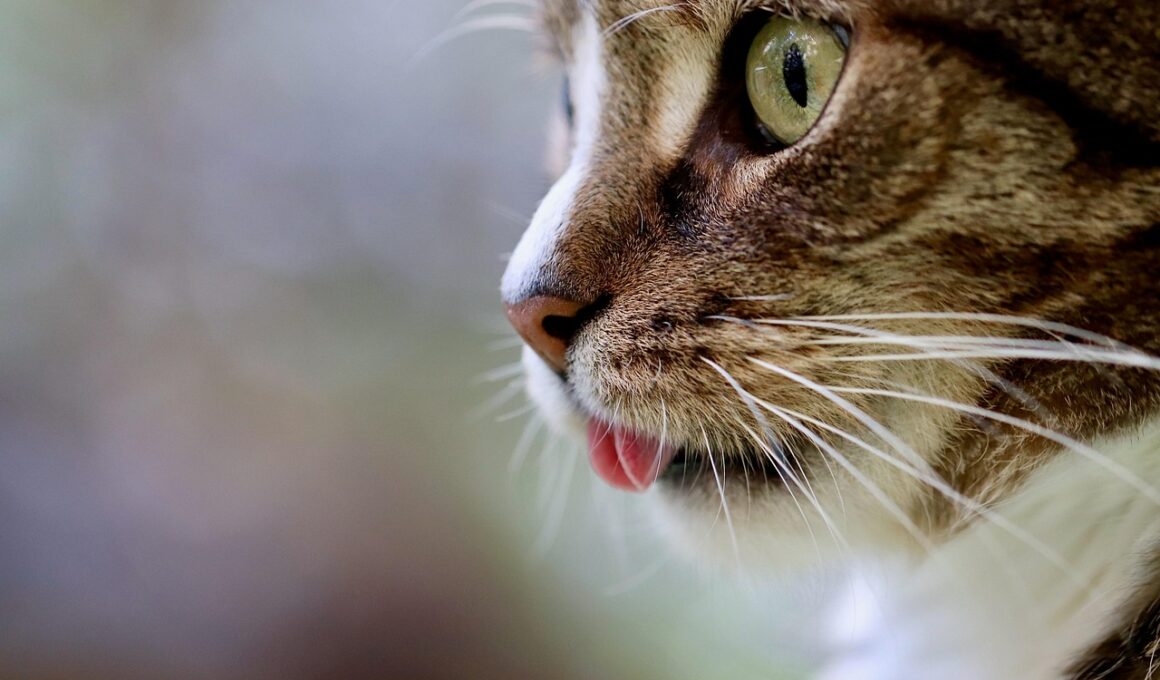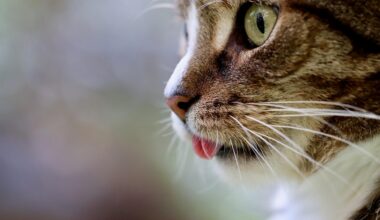Vitamin Deficiencies in Cats: Signs and Solutions
Ensuring our feline friends are healthy involves recognizing and addressing vitamin deficiencies, which can lead to various health issues. Cats require specific vitamins for optimal health, including vitamins A, B, D, E, and K, each playing a critical role in their well-being. A deficiency in these essential nutrients can significantly impact your cat’s overall health, leading to symptoms such as lethargy, poor coat condition, and even behavioral changes. Cat owners often overlook these symptoms, mistaking them for general aging or common feline behavior. Regular veterinary check-ups are crucial, as vets can perform specific blood tests to determine if your cat is deficient in any vitamins. A balanced diet enriched with vitamin-fortified treats is one effective preventive measure. These treats are tailored to meet the specific dietary needs of cats and can provide the additional nutrients they might lack in their regular food. Always consult with a veterinarian before introducing new treats, ensuring consistency with your cat’s unique nutritional requirements. You can enhance your cat’s diet by incorporating high-quality, age-appropriate commercial foods, which regularly update their nutrient profiles based on ongoing research.
Common Signs of Vitamin Deficiencies
Recognizing the signs of vitamin deficiencies in your cat can be crucial for future health and happiness. Common symptoms include noticeable changes in fur quality—such as excessive shedding, dullness, or bald patches, which may indicate a lack of essential fatty acids or protein. Immunity issues can also arise, resulting in frequent infections or illness due to insufficient vitamins contributing to a healthy immune system. A cat suffering from deficient vitamins may exhibit behavioral changes, including increased irritability or lethargy. Digestive issues can also appear, such as vomiting or diarrhea, pointing to potential nutrient absorption problems. Observing your cat closely can help you note these changes early, enabling a swift response. Additional signs to watch for include teeth and bone health problems, manifesting as dental disease or weakened bones. Certain breeds may harbor genetic predispositions to specific deficiencies, necessitating particular attention to their dietary needs. If you observe any of these signs, it’s prudent to keep a detailed diary of changes and consult a veterinarian. Early detection and proper dietary adjustment can have profound implications on your cat’s longevity and quality of life.
The Role of Vitamin-Fortified Treats
Vitamin-fortified treats play an essential role in supporting the overall health of cats facing deficiencies. These specialized treats offer a convenient way to supplement your cat’s diet and can provide the necessary vitamins that some commercial cat foods may lack. Many brands are specifically designed to enhance the nutritional value of your cat’s daily intake while serving as a tasty snack. When selecting these treats, it is essential to read labels carefully and choose high-quality options with balanced proportions of vitamins. Look for treats that feature natural ingredients and avoid artificial additives or fillers. Additionally, consult your veterinarian on which vitamins your cat might need, taking into account individual dietary habits and lifestyle. Some cats may be particularly finicky and require creativity in incorporating vitamin-rich options into their diet. Beyond just enhancing health, these treats can also be used as a training tool, stimulating your cat mentally while nurturing a strong bond through positive reinforcement methods. Using moderation with vitamin treats is key to maintaining a balanced nutritional profile without leading to obesity or other dietary-related issues.
The impact of vitamin deficiencies can extend beyond physical symptoms, affecting a cat’s emotional and mental well-being. A lack of certain vitamins may lead to alterations in mood or behavior, potentially making them more anxious or aggressive. It is crucial to monitor your feline’s emotional responses closely; deviations from their typical behavioral patterns may signal underlying nutritional issues. Providing a stable and nurturing environment along with a balanced diet promotes a sense of security, ultimately helping your cat thrive. Engage your cat with interactive play, providing mental stimulation as part of their routine, which can further alleviate anxiety-related behaviors and keep them more active. In addition to treats, consider introducing supplements under veterinary guidance. Options available may help address specific deficiencies or complete certain imbalances in your cat’s diet. Regularly changing or rotating dietary treats can also prevent boredom and promote healthy eating habits, making it easier to maintain their overall wellness. By staying observant and proactive, cat owners can foster a happier, healthier lifestyle for their pets, positively impacting their lives and creating fulfilling relationships between them.
Choosing the Right Cat Food
Selecting the appropriate cat food is vital in preventing vitamin deficiencies. When choosing, consider your cat’s age, weight, activity level, and any existing health conditions. It is essential to look for foods that comply with guidelines set by the Association of American Feed Control Officials (AAFCO), ensuring they meet established nutritional standards. Premium brands often have higher quality ingredients and more bioavailable nutrients, helping your cat absorb vitamins effectively. Wet food can be particularly beneficial for hydration, while dry kibble provides dental benefits. Experiment with varieties that align with your cat’s preferences, offering a mix to provide an array of textures and flavors. To supplement their main diet, incorporate vitamin-fortified treats carefully, as previously discussed, to bolster nutrient intake. Specially designed foods exist for unique life stages, such as kitten or senior formulas, which account for different vitamin needs. Transitioning between diets should be gradual, slowly introducing new foods to minimize digestive upset. Observing your cat’s reaction and consulting your vet for personalized advice ensures you make the best choices for your furry companion’s dietary health.
Another important aspect to consider is how food preparation can influence the vitamin content of your cat’s diet. Commercial foods are carefully formulated for shelf stability and nutrient preservation but can still lose essential vitamins due to prolonged storage or improper handling. Home-cooked meals for cats can be a wholesome alternative; however, if not done correctly, deficiencies may arise. Cats require a balanced diet that incorporates meat, vegetables, and certain vitamins to meet their unique dietary needs. Home-cooked meals should be carefully calculated in proportions to avoid imbalances; therefore, seeking advice from a pet nutritionist can provide additional guidance. Raw diets have gained popularity but also carry risks; bacterial contamination can harm your pet’s health. It’s vital that any raw offerings are handled correctly, and the right balance of nutrients is kept. Regularly revisiting your cat’s dietary needs as they age or experience changes is equally important. Staying committed to their health requires ongoing education about nutrition and aligning their dietary needs with rich, balanced sources of vitamins that contribute to a long, vibrant life.
Conclusion and Ongoing Care
In conclusion, awareness of vitamin deficiencies in cats is crucial for maintaining and improving their health. Regular veterinary check-ups and careful diet management will empower pet owners in the relentless pursuit of optimal wellness. Understanding your cat’s nutritional requirements, recognizing possible deficiency signs, and using vitamin-fortified treats can significantly contribute to a healthier lifestyle. Continued education about cat nutrition—choices available and changing dietary needs—will ensure ongoing care is adapted as your cat ages or experiences health changes. Engage with your veterinarian or pet nutritionist regularly and plan adjustments to your cat’s diet as necessary, emphasizing precaution over complacency. Investing time in proper nutrition leads to a better quality of life for both you and your cat. Building a routine that includes suggested preventive measures and maintaining a keen eye on your pet’s health will certainly pay dividends in their happiness and longevity. It’s gratifying to see your furry companion flourish, leading to a deeper bond between you. Aim to provide the best for your feline friend, demonstrating your love and commitment through careful attention to their dietary needs.
Pet owners should not hesitate to ask questions regarding the best options for their beloved cats. Awareness toward vitamin deficiencies, including the signs and solutions discussed, reinforces the role of nutrition in maintaining a long, fulfilling life. Cats communicate their needs, and attentive owners can decipher these signals, ensuring prompt attention and appropriate care. Vitamin deficiencies might often remain unnoticed until more severe symptoms arise. To mitigate this risk, regular vet visits, complete with nutritional evaluations, offer added reassurance in your cat’s diet. Take advantage of resources like your veterinarian or reputable pet care websites for detailed information. Resources and insights can help you navigate the complex world of cat nutrition, allowing you to make informed decisions that benefit your feline companion. Don’t overlook your responsibility in providing adequate vitamins; their overall well-being depends on your education and awareness. By prioritizing your kitty’s health through vigilant care and nutritional wisdom, you set the stage for years of companionship filled with joy and well-being. With the right choices, you ensure your cat leads a happy and healthy life, strengthening your bond and providing peace of mind.


